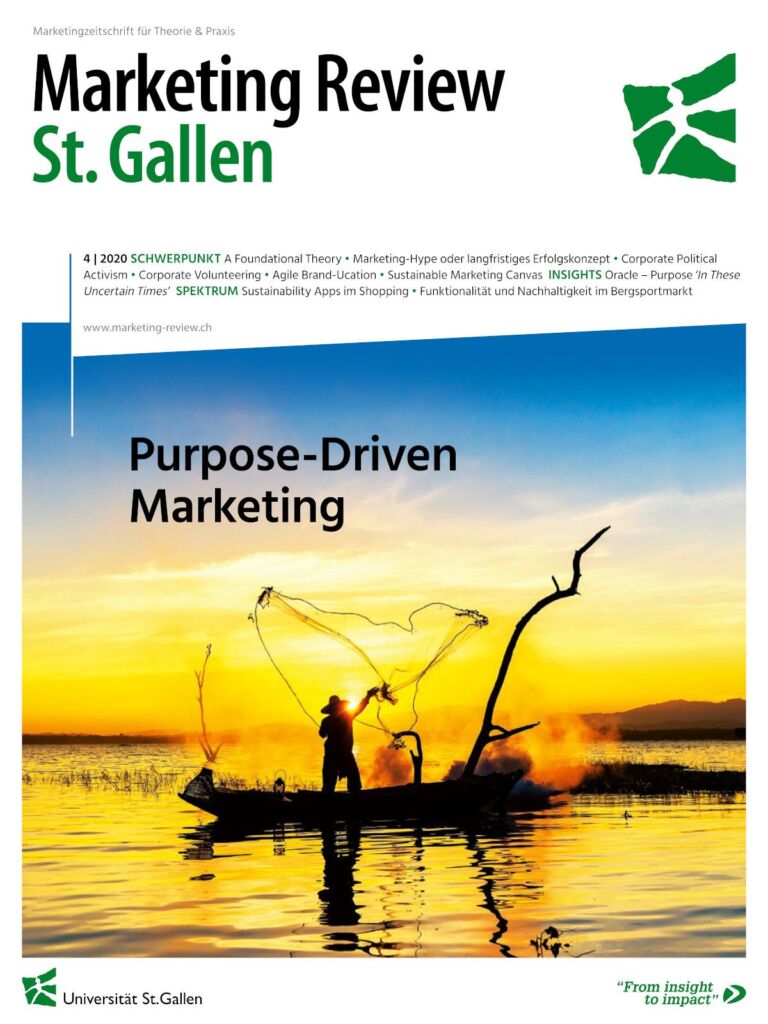Marketing Review St.Gallen 4 | 2020 "Purpose-Driven Marketing"
“No company was ever destroyed by profit” – that is the title of a recently published book by the well-known management consultant Hermann Simon. As a scientist who is particularly concerned with the topics of marketing controlling and pricing, I can fully agree with this statement. However: Profit alone is not enough.
This issue of Marketing Review St. Gallen therefore deals with the topic of “Purpose-driven marketing”. The business “Purpose” poses the question of the meaning and purpose of one’s own market-oriented activity. It is not only about the classic business objectives such as growth, security and profit, but also about the function of the company in the superordinate system, i.e. society.
An entrepreneurial activity only serves a purpose if it contributes to solving a social task. The British-American management consultant Simon Sinek uses the term Purpose to describe the question of “why”, i.e. the driving force behind entrepreneurial activity, which a company’s management must clarify before it comes to the “how” of service provision or the “what” of its own range of services. Especially in times when climate change, digitalization and pandemics are major challenges, the search for meaning seems particularly relevant – not only for entrepreneurs and managers, but also for consumers and employees. The “why” serves as a guard rail and barrier for the subordinate purely economic goals.
In a recent study, a leading German advertising association turned this hierarchy on its head and defined and called for a “return on purpose. Is it worthwhile in business terms to pursue a purpose? In other words, if it “pays off,” then top management and shareholders can be persuaded to pursue a well-intentioned social purpose. But what happens if the return on purpose is negative? Is it then no longer pursued because it is not profitable? My personal opinion is: A genuine social “Reason Why” of entrepreneurial action, lived out of conviction, is exemplary and “pre-business”. On the other hand, a pretended “purpose” in the fine-spiritual garb of “corporate social responsibility” will, like “greenwashing,” always have a negative “return on purpose” in the long term. In other words: You won’t get far by lying. It is better to honestly and bluntly acknowledge shareholder value as the primary maxim for action than to pretend to have a purpose.
Therefore I hope that the contributions will help you to reflect, affirm and give new impetus to your personal purpose-goal hierarchy and thus the “why” of your personal entrepreneurial marketing activities.
This text is the editorial of the current issue of Marketing Review St. Gallen with the topic “Purpose-Driven Marketing”. You can find the magazine in our shop.

